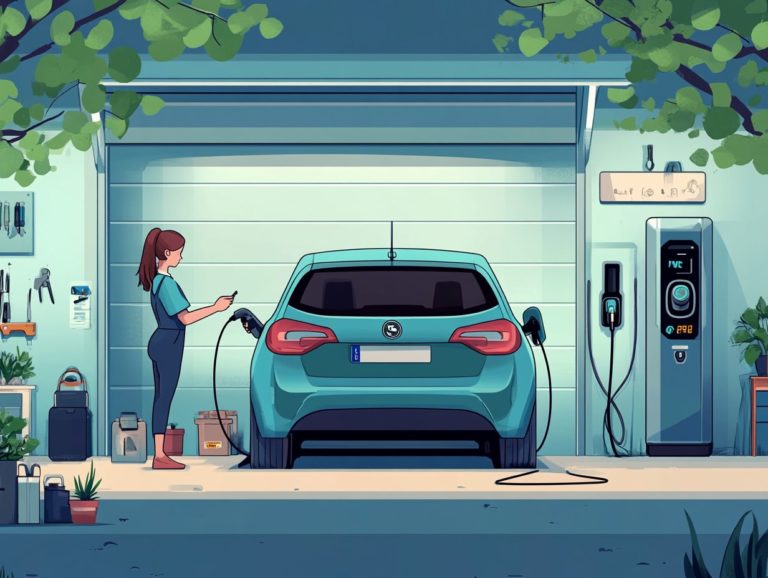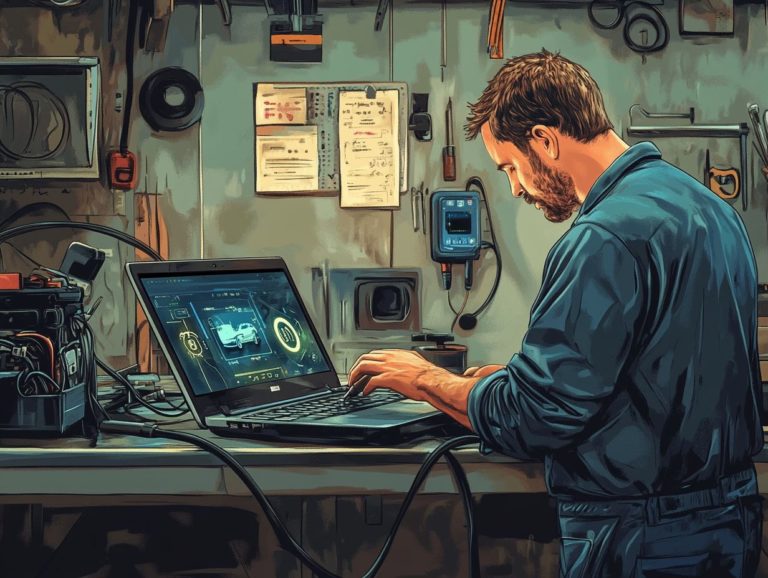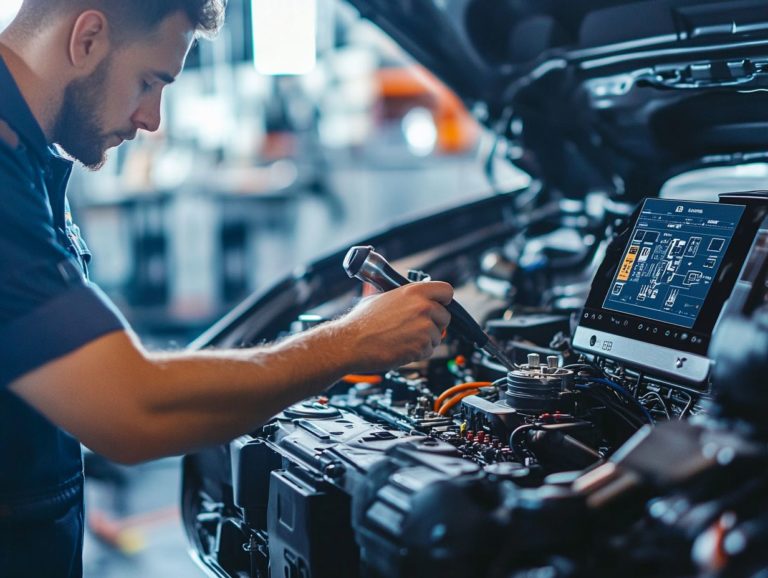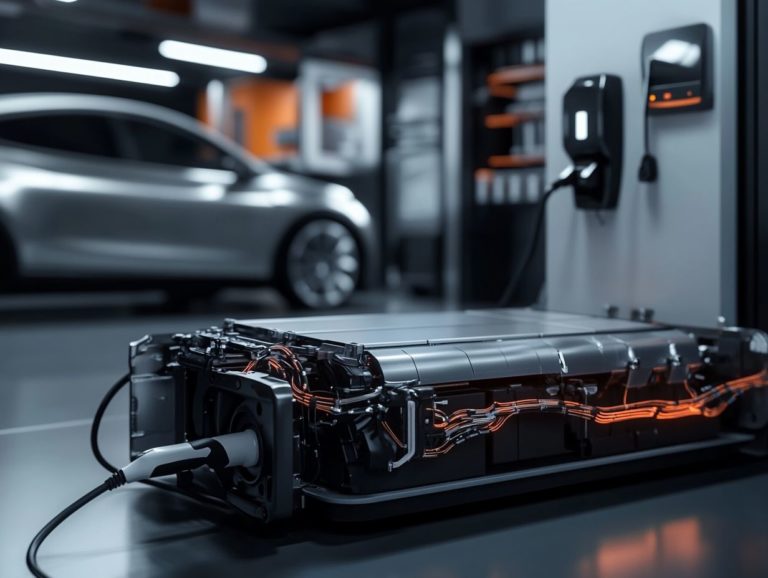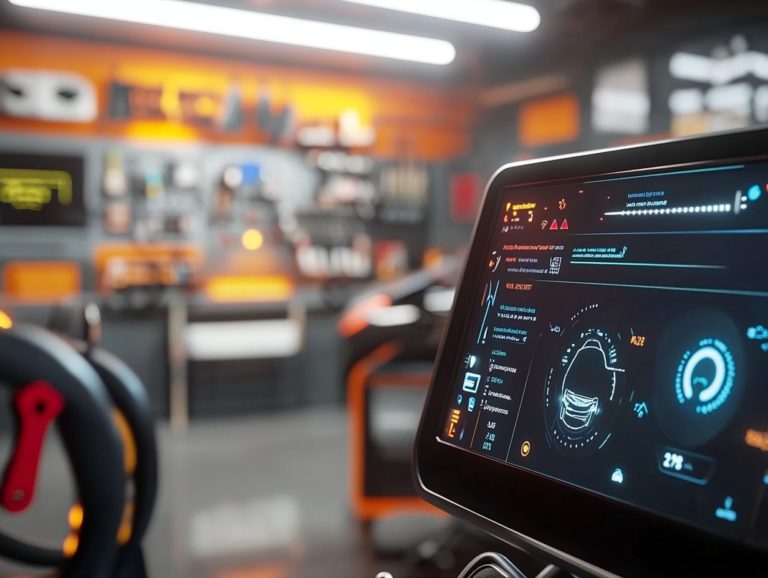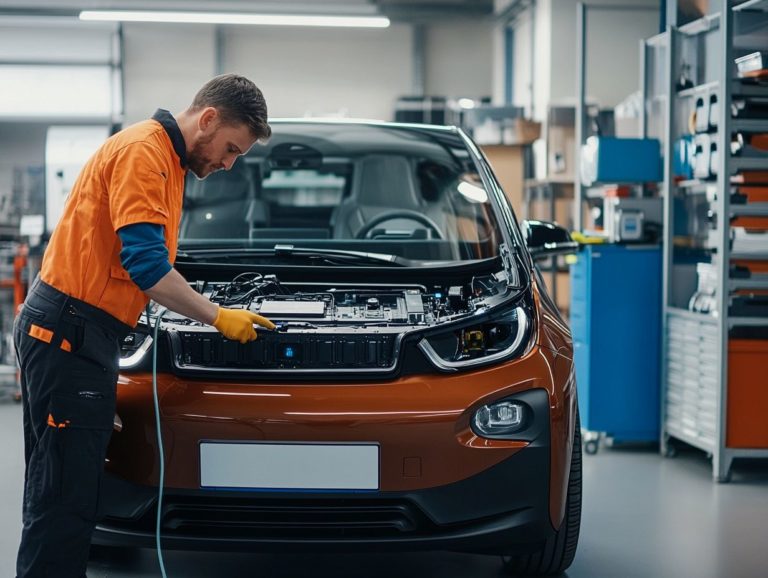How to Check Your EV’s Brake System
Understanding your electric vehicle s brake system is crucial for safety and performance. This article explores key components of your EV’s brakes and common warning signs of issues.
You ll find a step-by-step guide to assess their condition. Learn best practices for maintenance and tips on when to seek professional help.
Empower yourself with the knowledge to keep your EV running smoothly and safely!
Contents
- Key Takeaways:
- Understanding Your EV’s Brake System
- Signs of Brake System Issues
- How to Check Your EV’s Brake System
- Maintenance and Repair of EV Brakes
- Professional Inspection and Servicing
- Frequently Asked Questions
- 1. How do I know if my EV’s brake system needs to be checked?
- 2. What should I do if I notice any warning signs in my EV’s brake system?
- 3. Can I check my EV’s brake system on my own?
- 4. How often should I have my EV’s brake system checked?
- 5. What components are included in an EV’s brake system?
- 6. Can a malfunctioning EV brake system affect my vehicle’s performance?
Key Takeaways:
- Check and maintain your EV’s brake system regularly for safety.
- Watch for signs like strange noises and changes in braking efficiency.
- Follow a guide or consult a professional when inspecting your EV’s brakes.
Understanding Your EV’s Brake System
Your EV’s brake system is essential for safety and handling. It includes components like brake pads and brake fluid, and advanced features like regenerative braking, which helps recharge your EV s battery when you slow down.
Knowing how these parts work together helps maintain braking performance. Familiarizing yourself with them enhances your driving experience and extends your vehicle’s life.
Key Components and Functions
The brake system includes brake pads, brake fluid, brake lines, and rotors, each vital for effective stopping and energy efficiency.
Brake pads press against rotors to slow the wheels. The hydraulic system uses brake fluid to amplify the force from the brake pedal.
Regular maintenance, like checking wear indicators on pads, is crucial. This ensures they are replaced before becoming too thin, preserving braking efficiency.
Signs of Brake System Issues
Recognizing brake system issues is crucial for your safety. Look for warning signs like grinding noises during braking.
A soft brake pedal might indicate low brake fluid. Pay attention to any dashboard alerts they signal your vehicle’s needs.
Common Warning Signs
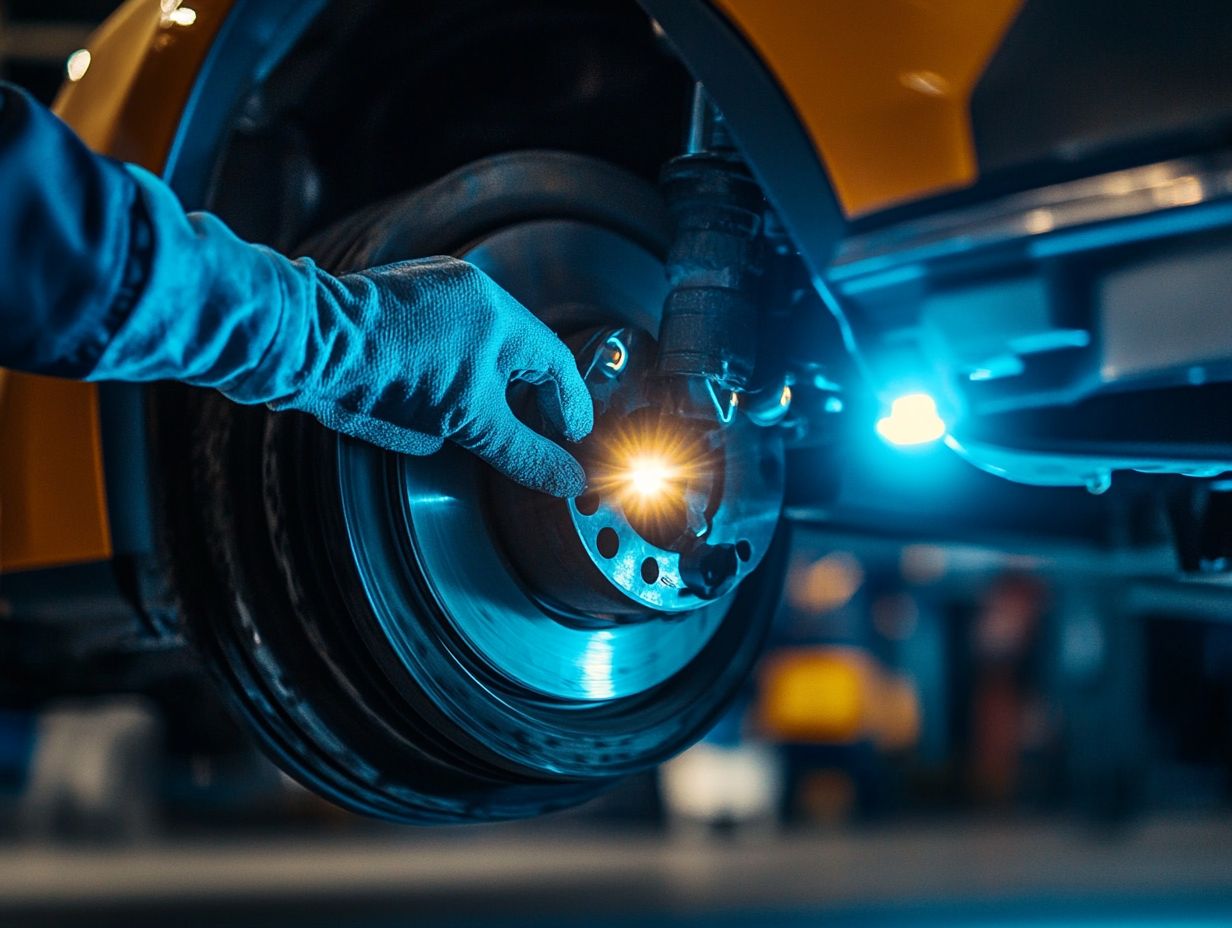
Common warning signs of brake issues include unusual noises like grinding or squeaking. A soft brake pedal often indicates low fluid levels.
A vibrating brake pedal or the car pulling to one side suggests uneven brake pad wear or issues with brake calipers. Always heed dashboard warning lights indicating malfunctions.
Regular maintenance is key to preventing problems. This includes:
- Routine inspections of brake pads and rotors
- Timely brake fluid changes
- Ensuring brake lines are leak-free
Keeping these components in top condition enhances your safety and extends your brake system’s lifespan.
Stay proactive! Schedule your brake inspection today to ensure your EV remains safe and efficient.
How to Check Your EV’s Brake System
Don t wait! Regularly checking your electric vehicle’s brake system keeps you safe and your car running smoothly. This inspection guide provides key steps to follow:
- Start by examining the brake fluid levels in the reservoir.
- Inspect the brake pads for any signs of wear.
- Assess the overall condition of the brake system through routine evaluations.
Prioritizing these checks will help maintain your vehicle’s reliability and peace of mind on the road.
Quick Steps to a Safe Drive
A comprehensive guide to examining your electric vehicle’s brake system involves crucial steps, such as inspecting brake fluid levels, assessing brake pad wear, and evaluating the performance of the brake fluid system. Additionally, it’s important to know how to inspect your EV’s tires for optimal safety and performance.
Routine checks of these components are essential. Ideally, check during your regular service intervals or at least every few months.
- Begin with the brake fluid; look for any discoloration or contamination. Clear fluid suggests everything is in good health.
- Next, scrutinize the brake pads for signs of thinning or uneven wear, as these issues could compromise your stopping power.
- Finally, test the brake fluid system by checking for leaks, which may indicate a failing component.
By consistently following these steps, you can proactively maintain your vehicle and enhance overall braking efficiency.
Maintenance and Repair of EV Brakes
Regular maintenance and timely repairs of your electric vehicle’s brakes are essential for optimal brake performance and maximizing energy efficiency. A consistent brake maintenance routine safeguards the integrity of your brake components and helps avoid the burden of costly repairs down the line.
Best Practices and DIY Tips
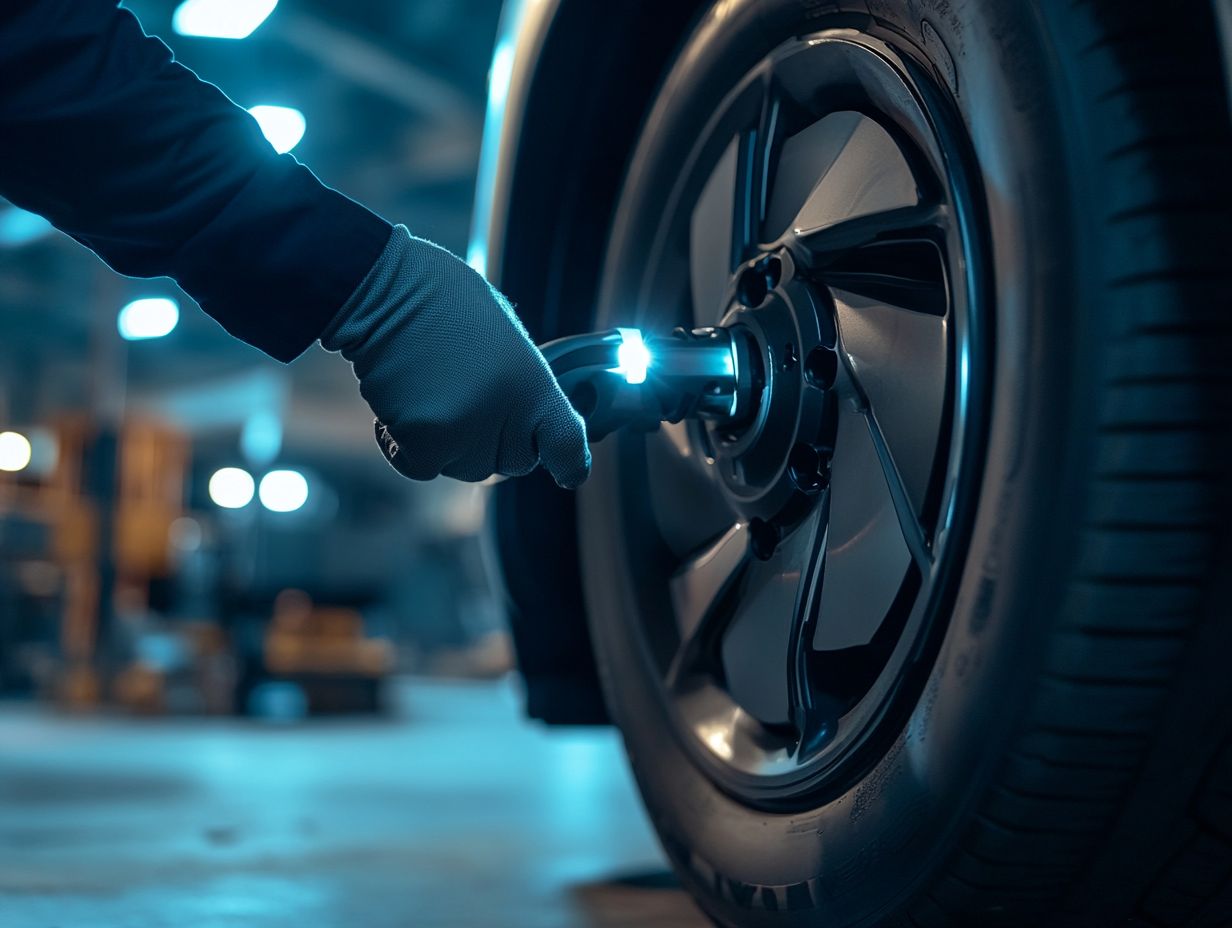
Best practices for brake maintenance involve routinely checking your brake pads and fluid levels, employing DIY tips to tackle common issues, and ensuring every brake component functions at its best.
By adopting a proactive approach, you can significantly extend the lifespan of your braking system. Regularly inspecting your brake pads is crucial; worn pads can lead to diminished stopping power and increased wear on rotors. Keeping an eye on brake fluid levels is equally important, as it helps maintain hydraulic pressure for optimal brake function. Low fluid levels can compromise performance and pose risks.
Cleaning brake components, such as calipers and surfaces, prevents debris buildup that could reduce efficiency. Periodic checks for leaks or unusual noises allow you to catch potential issues early, enhancing both safety and performance on the road.
Professional Inspection and Servicing
Professional inspection and servicing of your electric vehicle’s brake system is crucial for uncovering issues that might not be apparent during routine checks.
Recognizing when to enlist expert assistance can save you from the risks of potential brake failures and ensure your system functions at its best.
When to Seek Professional Help
Knowing when to seek professional help for your electric vehicle’s brake system is essential. Watch for persistent warning signs, such as unusual noises or a soft brake pedal.
If the brakes feel less responsive or if your vehicle pulls to one side while braking, these are unmistakable signals that you need immediate attention. Ignoring such symptoms compromises your driving safety and can lead to more extensive, costly repairs down the line.
Remember, timely intervention by professionals can significantly impact restoring your vehicle’s performance and ensuring road safety. Mechanics trained in electric vehicle systems possess the expertise to diagnose issues accurately and recommend necessary services, making their role crucial for maintaining optimal brake functionality.
Frequently Asked Questions
Check your brake systems regularly to ensure safety and performance!
1. How do I know if my EV’s brake system needs to be checked?
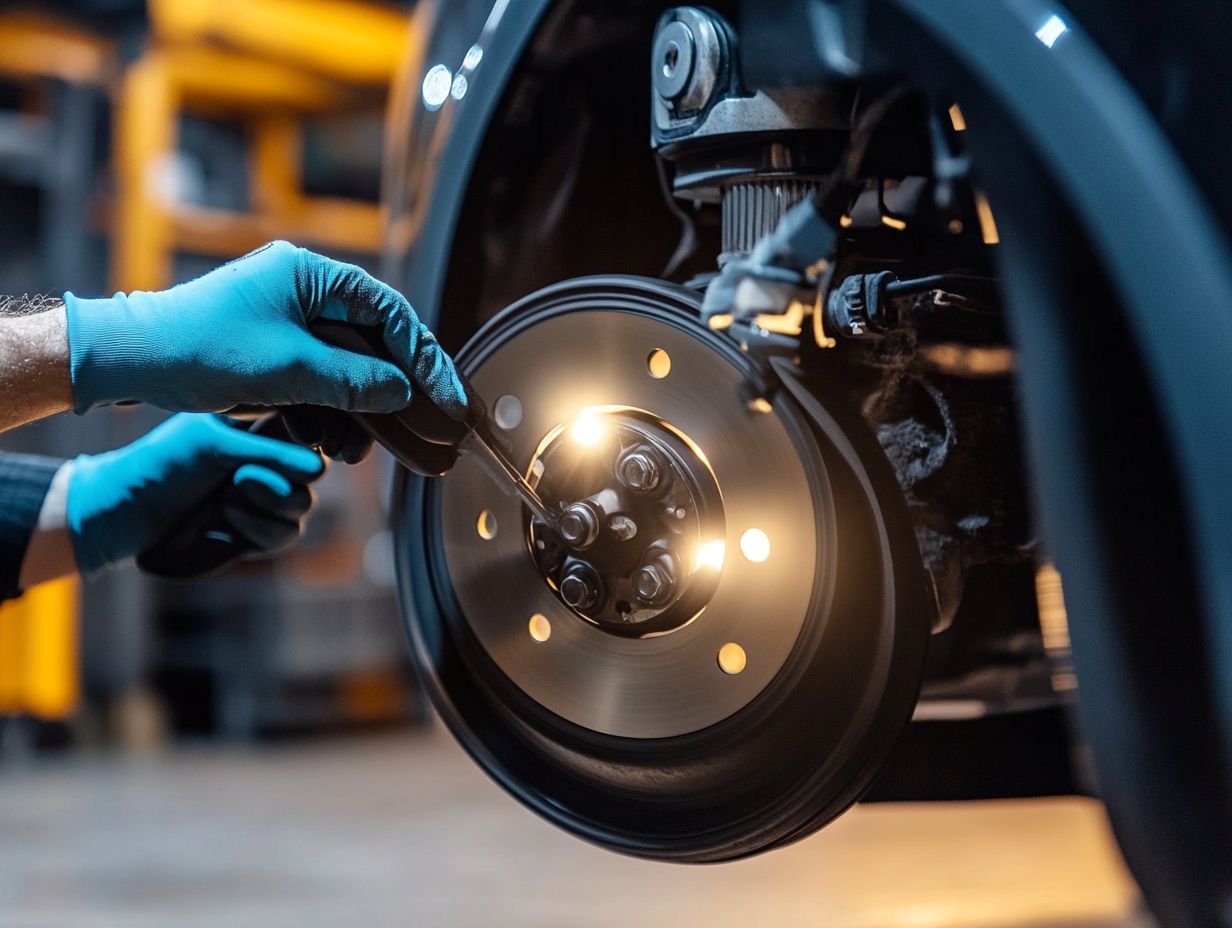
Look for warning signs like a spongy brake pedal, strange noises, or a pulsating brake pedal. These indicate your brake system may need attention.
2. What should I do if I notice any warning signs in my EV’s brake system?
If you see warning signs, get your EV’s brake system checked by a certified mechanic right away. Ignoring these signs can create serious safety hazards.
3. Can I check my EV’s brake system on my own?
You can perform a visual inspection of your EV’s brake system. However, if you want to ensure everything is in order, learning how to check your EV’s fluid levels is also essential, though a professional mechanic is equipped to diagnose any deeper issues.
4. How often should I have my EV’s brake system checked?
Have your EV’s brake system checked at least once a year or every 12,000 miles, whichever comes first. If you notice warning signs, don t hesitate to get it checked immediately.
5. What components are included in an EV’s brake system?
An EV’s brake system includes brake pads, rotors, calipers, brake lines, and a master cylinder. Each component plays a crucial role in stopping your vehicle safely.
Calipers press the brake pads against the rotors to stop the car. The master cylinder sends brake fluid to these parts.
6. Can a malfunctioning EV brake system affect my vehicle’s performance?
Yes, a malfunctioning brake system can significantly impact your vehicle’s performance. Regular checks ensure optimal operation and keep you safe on the road.

